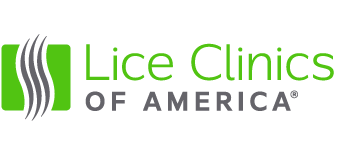Head Lice Prevention Month: How to Identify Head Lice
“One of the biggest reasons that head lice spread among children is silence,” Ryan Nelson, owner of Lice Clinics of America in Southwest Florida explains. “Parents don’t talk about it, and they are unprepared when they discover their child has head lice, and often waste a lot of time and money on products or methods that don’t work.”
It is so important to check your child’s head regularly, especially when children return to school from summer vacation and other school breaks. To check successfully, parents need to understand what they are looking for.
“You have to know what lice look like, but you also have to know how and where to look,” says Ryan. “There’s a big misconception that if children aren’t scratching their heads, they don’t have lice.”
According to the Mayo Clinic, “When a person has an infestation for the first time, itching may not occur for two to six weeks after infestation.” So, don’t wait until your child experiences itchiness to check for head lice. Once itching starts, the infestation can be advanced and more difficult to treat. Not all kids will itch. They may feel something moving on their head or nothing at all.
At Lice Clinics of America, we recommend checking for head lice once a week during peak lice periods like the start of the school year, before and after big holiday get gatherings and summer camp.
Adult head lice are about the size of a sesame seed and live within a quarter inch of the scalp, usually around the ears and the nape of the neck but you can find them on the crown of the head as well. You can look around with a rat tail comb or a chop stick but it’s a good idea to wet your child’s hair, and run a fine-toothed lice comb through the hair,” Ryan said. “The lice will get caught in the comb, otherwise; you might not be able to see them. Also, be sure the comb is directly along the scalp during each stroke.”
Differentiating lice from dandruff, dry skin, or residue from hair sprays or gels isn’t easy,” explains Ryan. “Wipe the comb on a white paper towel. If something is moving, it’s probably a louse. If it’s not moving but the size and shape of a sesame seed it is likely an egg (often called a nit), press on the edge of the nit with the side of a knife blade. If it pops away from the blade it’s probably and egg but if it stays put and the knife blade can squish it, it’s likely not a nit.
“If you want to be sure, here at Lice Clinics of America in Southwest Florida, we offer professional head lice screenings,” explains Ryan. “Newborn lice or nymphs are so small that we generally use our microscope to identify them. It is a good idea to have a professional screen to be sure of the diagnosis. You certainly don’t want to treat your child if what he or she has is not head lice.”
A professional screening is a small price to pay for peace of mind. If the professional lice technician determines a child does have head lice, she can be treated on the spot, and leave the clinic lice-free in about one hour.”
Lice Clinics of America in Southwest Florida has a secret weapon—the AirAllé® FDA-cleared medical device which is clinically proven to kill live lice and more than 99 percent of eggs (nits) in a single treatment. The device uses precision-controlled heated air to dehydrate lice and eggs, so it is non-toxic and pesticide free. Best of all it is a “one and done” treatment and is guaranteed to be effective. The AirAllé has successfully treated more than 950,000 cases of head lice in more than 350 clinics around the world.
If your child doesn’t have head lice (Hurray!), you can pick up Lice Clinics of America’s head lice prevention sprays, conditioners, and shampoos — all help prevent head lice by repelling lice with a scent pleasant to humans and very unpleasant for lice.
“We recommend our prevention products be used like sunscreen or mosquito repellent,” suggests Ryan. “Apply them daily any time you think your child is going somewhere she might be exposed to head lice.”
To learn more visit liceclinicssouthwestflorida.com. To schedule an appointment call (305) 907-2121.
We hope you are and will continue to be lice free!









